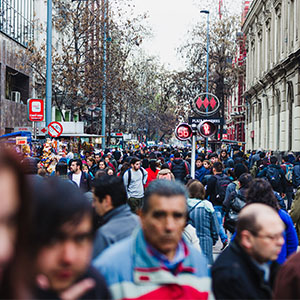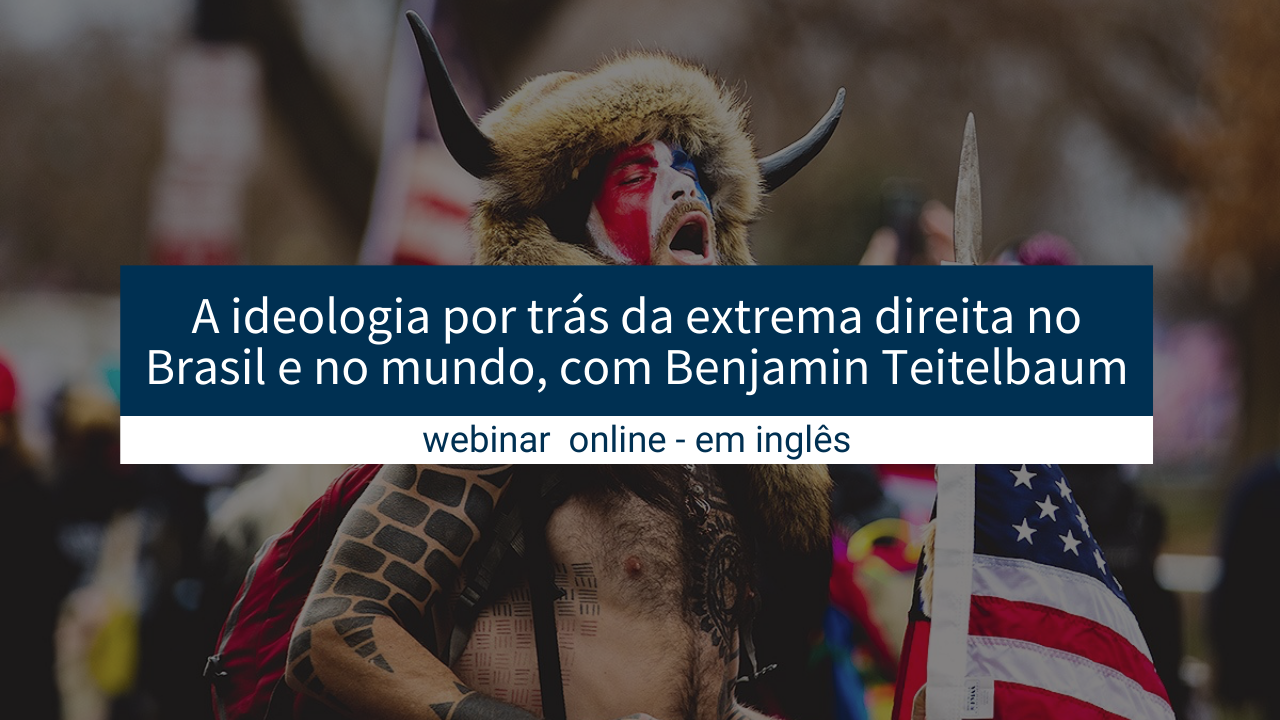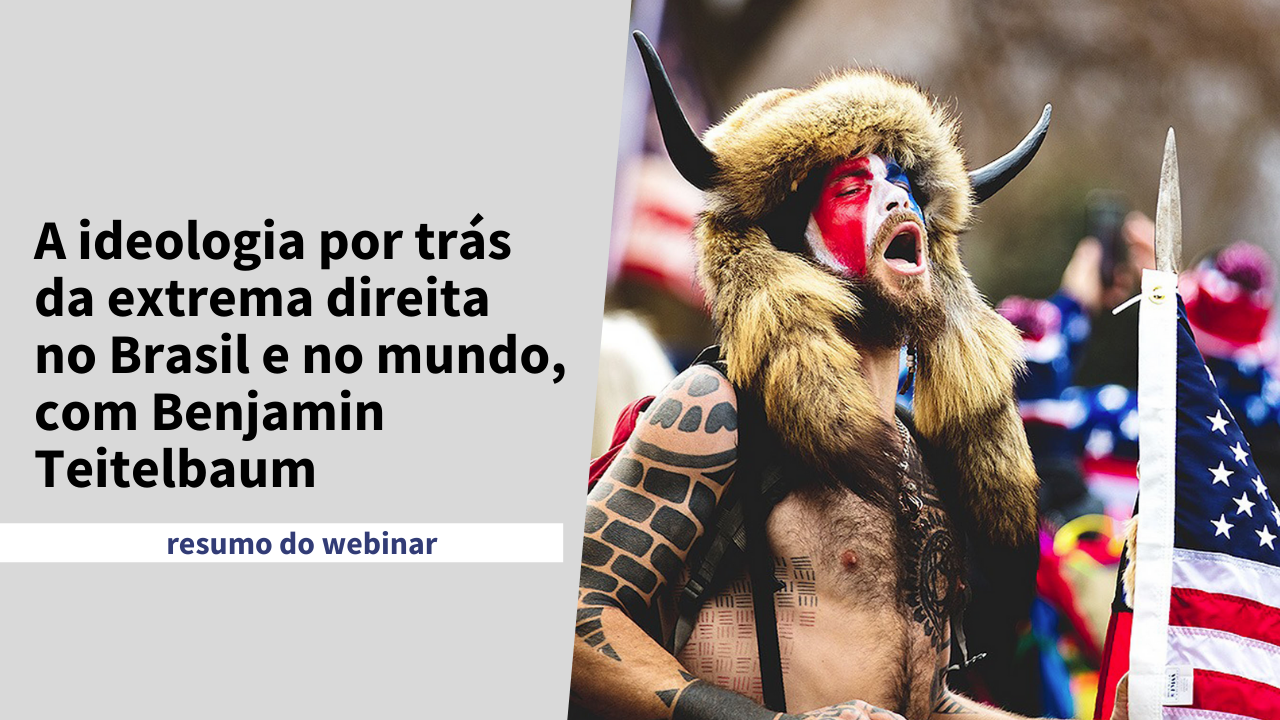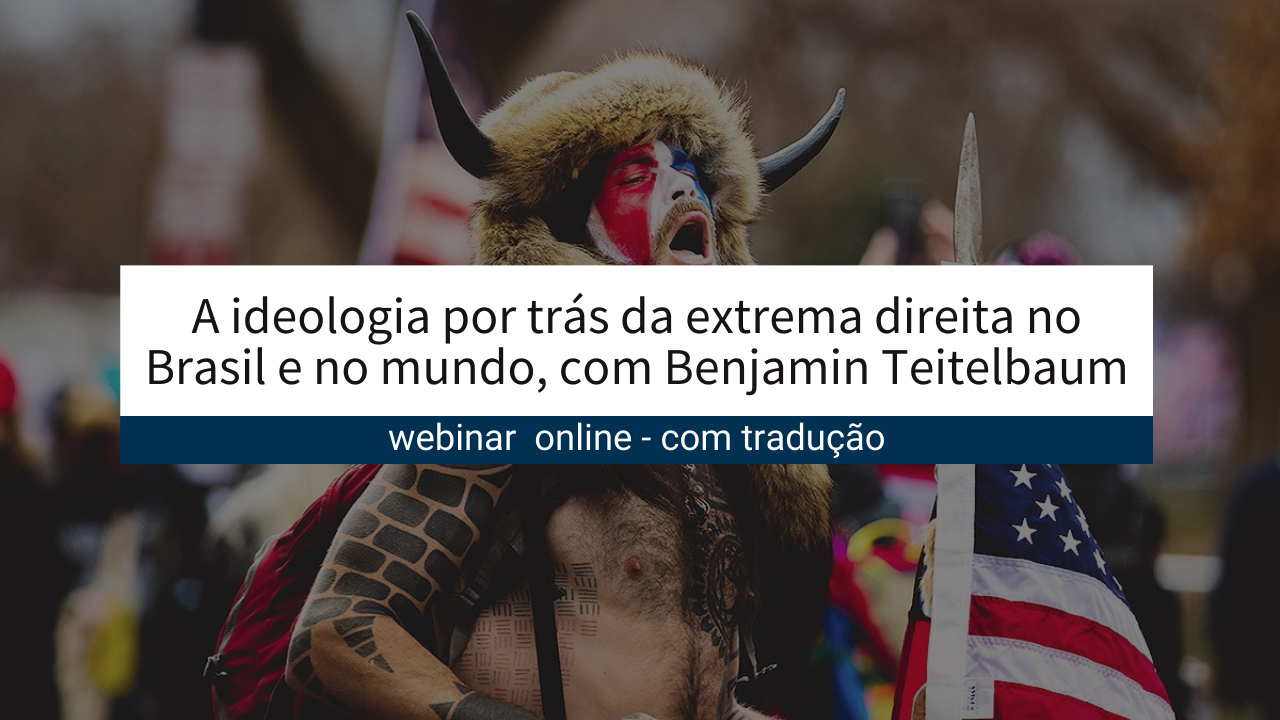“We live in an era of turmoil and confrontation with an evil, secular, and globalist status quo, and the only way to recover an ideal, spiritual, and orderly society like the one that (supposedly) existed in the past is through the destruction of today's existing society and its institutions, which will ultimately lead to a renaissance.”
That’s how American ethnographer, professor, and researcher Benjamin Teitelbaum summarized the thinking behind traditionalism, a philosophical-moral system that values tradition, understanding it as a set of habits and trends that seek to maintain a society within the balance of the forces that gave rise to it (Basic Dictionary of Philosophy, Edit. Zahar).
Even though traditionalism is not an essentially political doctrine, it provides two key ideas for the ultra-right movements that have emerged with force in the United States and Western and Eastern European countries, as well as in Russia and in Brazil. The first key idea is that an idealized past must be restored. The second is that this past was lost because of moral degeneration, primarily through the progressive abandonment of religion and through materialism.
In converting traditionalism into political action, what must be restored is the people's and the nation's ethnic, cultural, and racial homogeneity and social order with well-defined hierarchies and social roles. Restoration goes through moral regeneration, which should be be carried out not by priests, but by political leaders who express the supposed essential homogeneity of the people and the nation, as opposed to a secular, rationalist, and globalist elite willing to sacrifice the people to maintain their privileges.
Teitelbaum spent over a year interviewing “traditionalist” thinkers and leaders. That research spawned the book “War for Eternity: The return of traditionalism and the rise of the populist-right”. Below are four questions asked to the University of Colorado professor by political scientist Sergio Fausto, Director of FHC Foundation, and by journalist Letícia Duarte, collaborator of the news daily El País and Piauí magazine.
Sergio Fausto - What are the characteristics of traditionalism compared to other far-right ideologies, such as fascism? What's different and what's similar?
Benjamin Teitelbaum - Let's start with the similarities. With fascism, there is a common desire for order, for things and social groups to be in their proper place. In some branches of traditionalism, we have the valorization of race, in the case of white Aryan supremacy, and of masculinity.
As for the differences, traditionalism, unlike fascism, doesn’t look to the future optimistically nor does it propose to build a world that is “better” than the current one. It invests all its chips in the idea that life in the past was superior and that, by destroying today's society, that glorious past can be revived. To achieve that goal, it wants to see the world we live in frayed and torn in half, globalism dissolved, secularism abandoned, and equality between men and women destroyed.
Letícia Duarte - Steve Bannon (American), Olavo de Carvalho (Brazilian), and Aleksandr Dugin (Russian) are gurus inspired by traditionalism – although Olavo denies it – who have or had influence in the governments of the United States (during the Trump administration), Brazil (Bolsonaro administration) and Russia (Putin administration). How do the ideas of these three figures interconnect, and to what extent do they use the elements of traditionalism to try to influence the politics and governments of such relevant countries?
Teitelbaum - Traditionalism was not originally a political ideology and, for many of its followers, it still isn’t. It’s a philosophical-spiritual doctrine, a belief in how time passes, how society was in the past, and how it will be again. One of its consequences is that it doesn’t offer anything specific or concrete to those who want to bring it into the world of contemporary politics.
What Steve Bannon, Olavo de Carvalho and Aleksandr Dugin have in common is that they all see global politics as the stage for a dispute between materialism and spirituality. However, they do differ on who represents materialism and who represents spirituality.
Olavo believes Christians from rural areas and small towns are the current maintainers of true spiritual vitality, whether in the USA, Brazil, or other countries. China, on the other hand, would be the primal force of secular materialism and globalization.
Dugin, in turn, believes that Western liberalism was the main driving force behind globalization, and secularization and any geopolitical force that rises against the West, especially the United States, should be supported by traditionalists.
But perhaps the most important thing that unites these three figures is the belief that we live in an era of turmoil and confrontation with an evil, secular, and globalist status quo. They also believe that the only way to recover an ideal, spiritual, and orderly society like the one that supposedly existed in the past is through the destruction of today's existing society and its institutions, which will ultimately lead to a renaissance. Therefore, there is a divestment in the building process, which is, after all, what politics as we know it is all about.
Fausto - What role does violence play in the traditionalist school of thought?
Teitelbaum - If we think of violence as a way of destroying what exists today, it has a potentially central role. Some traditionalists believe in cycles of time, that progress does not happen in a linear, continuous manner, but that time is constantly revolving so that from a dark time, a new golden era can emerge. After a calamity, a catastrophic implosion of society, something new and very good could emerge. Traditionalism also has other branches that feel that people can speed up history through large-scale violence and destruction. Meaning, as an individual, it is possible to do something that affects this gigantic cosmic process.
When I interviewed Steve Bannon, for example, I was struck by his description of Donald Trump as 'the right man, at the right time, in the right place.' Certainly, the former U.S. president didn't know anything about the time cycles of traditionalism, as he probably never read a single paragraph of traditionalist literature, but even though he didn't quite know what he was doing, he undoubtedly represented a force of destruction of American society.
Duarte - In your book, you say that traditionalism does not elect a specific religion as the only one capable of leading its followers on the right path, but we know that some traditionalists have a strong connection with Hinduism, others with mystical strands of Judaism, Christianity, and Islamism. Can you better explain the relationship between traditionalism and spirituality, or religion?
Teitelbaum - One of the central beliefs of traditionalism is that millennia ago, there was a true religion – a millennial and perennial tradition, hence the name of the movement, also known as “perennialism” – that was gradually forgotten by humanity. That tradition disintegrated and spread out in different directions. The religions of today that best reflect that original religion would be the oldest ones that have kept ancestral practices alive almost without interruption. In this sense, the one that most qualifies is Hinduism, which has been active in India for thousands of years, unlike European pagan practices or the Zoroastrianism of ancient Persia (present-day Iran).
But there are also traditionalists who follow Sufism (the mystical and contemplative current of Islamism), the Kabbalah (the Jewish mystical tradition), and Buddhist, and Christian sects. Traditionalists believe that the religious path one chooses to follow in the present is secondary to something greater from the past and that will one day return. If one devotes oneself to a spiritual path throughout life, that person will likely have an opinion of what that ancient religious tradition was in the past.
Otávio Dias is a journalist specializing in politics and international affairs. A former correspondent for Folha in London and editor of the estadao.com.br website, he is currently the content editor at Fundação FHC.
Portuguese to English translation by Melissa Harkin & Todd Harkin (Harkin Translations)












